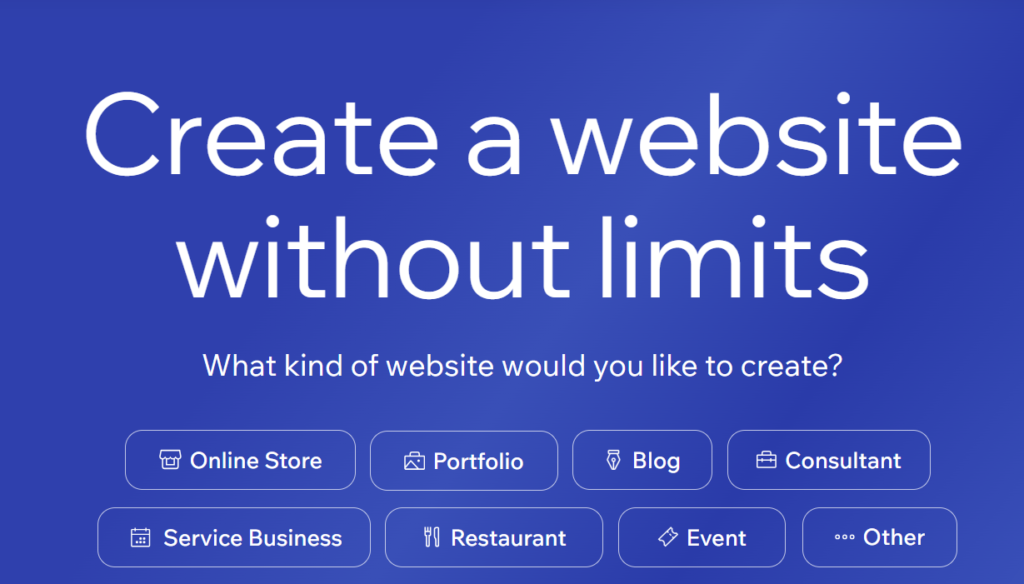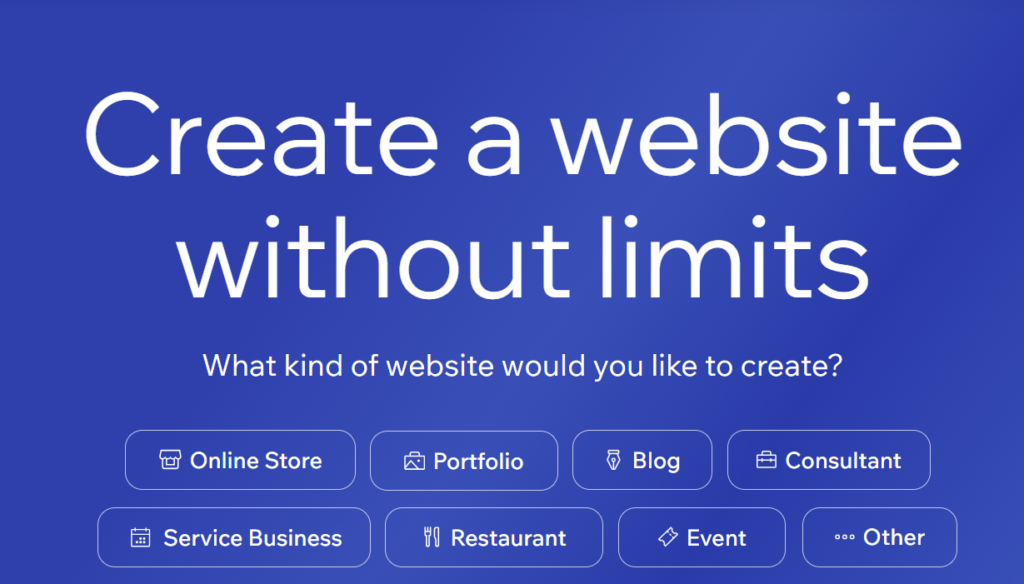Business owners have massive opportunities to grow their businesses in the e-commerce landscape. Statistics show retail e-commerce sales are projected to hit 1.8 trillion by 2027.
If you are looking for the best e-commerce platform, the right one can help you launch and expand your small business.
But how do you identify the best?
21% of small business owners need more coding skills and the budget to create a website. However, the e-commerce business builder is the ultimate solution for this challenge.
To have a premium and professional-looking e-commerce store, use the best e-commerce platform, and you’ll experience a boost in sales in no time.
We have compiled a curated list of the leading e-commerce platforms to help you build your brand’s credibility and convert leads into sales.
Table of Contents
Understanding the e-commerce platform
Beginners in the e-commerce industry must understand an e-commerce platform before choosing the right one.
So, what is an e-commerce platform? It is software that helps you build and run an online store. This platform also allows you to market products, manage orders and inventory, and process payments.
Generally, it is an engine that builds, manages, and expands online stores.
Choosing the right e-commerce platform: Things to consider
E-commerce platforms are different. Some are built for small businesses, while others are built for more advanced ones.
Some are budget-friendly, while others charge hefty fees. Before we dive into the details of each platform, let’s look at the factors to consider when selecting one.
1. Features
You need to understand an e-commerce platform’s features and how they are helpful to your business.
The ideal platform should help you with product management, payment processing, shipping, marketing, and inventory management.
The best ecommerce platform for small businesses allows you to add, describe, edit, and categorize your brand’s products and images.
Accepting customer payments should be easy with payment channels like PayPal, Apple Pay, and credit and debit cards.
The e-commerce store should provide marketing tools such as social media integration, email marketing, and SEO tools.
Additionally, the platform should offer basic and advanced features for tracking inventory.
2. Pricing
Ecommerce platforms for businesses offer a range of pricing options, from free to a couple of dollars. The price depends on the size of the company and its features.
The free e-commerce platform can help if you are starting up. However, the free versions may have fewer features and only accommodate small businesses.
As you level up, you can upgrade to the paid versions, which offer more features and accommodate larger enterprises.
3. Functionality and ease of use
The platform should be easy for you and your team to use. Only some people are tech-savvy; therefore, choose a platform that is quick and straightforward to handle.
You may choose a platform with drag-and-drop tools and easy-to-follow guidelines.
The platform should also be mobile-friendly in today’s mobile-first world. It should provide a seamless and responsive experience for mobile phone users.
4. Flexibility and scalability
If you want to grow your business in the future, you need a scalable platform. Some platforms are more scalable than others. They allow you to handle various products and process many orders.
To manage your expanding business, it is essential to select a platform with advanced features such as abandoned cart recovery, advanced product search and filtering, and customer accounts.
5. Security and support
Security and support are critical for any online business to thrive. To keep customer data safe, the best e-commerce platform should prioritize security with features such as SSL encryption and PCI-DSS compliance.
Good customer support is also required if you need help setting up your store.
Choose a platform that offers 24/7 customer support through email, phone, or live chat. The platform should also provide support and other helpful tutorials for your perusal.
The best e-commerce platforms for small businesses
Let’s now compare the top e-commerce platforms for small businesses.
1. Shopify
Shopify is a one-stop solution for digital entrepreneurs to start and grow their online businesses.
The platform accommodates everyone who wants to enter the e-commerce business. Statistics show that Shopify has generated more than $700 billion in sales since its inception in 2006.

The feature-rich platforms offer suite tools such as e-commerce website builder, email marketing, abandoned cart recovery, and Shopify payments to help you succeed in the online business.
In addition, you can explore the extensive library of third-party applications to add features to your store. Some of these applications are free, while others are charged.
Start shopify Free Trial Today


Shopify also features inventory management tools to help you manage your stock and the business.
This feature allows you to email customers, fulfill orders, and track inventory in real-time.
Pros:
- The platform is easy to set up.
- Easy to use
- There are various plans to choose from.
- Shopify payments
- Excellent at multichannel sales
- Click-selling apps are available.
Cons:
- It can be pricey compared to other platforms.
- Short trial period (3 days)
- Subscriptions can be costly if you add many third-party apps.
- Need SEO improvements
Shopify is the best e-commerce platform for everyone because it offers outstanding possibilities for customizing and expanding an online business presence.
2. Wix
Wix is the most popular e-commerce platform because of its ease of use and affordability. The platform has captured the attention of over 250 million users who use it to grow their businesses.
It is an excellent platform for small business owners to start and grow their digital businesses.

It has a user-friendly interface and drag-and-drop feature, making it easy for people with coding knowledge. Wix’s pricing plans are cheap, favoring small companies on a budget.
With Wix’s controls, it’s easy to customize each page. If designing is too much work, let Wix’s artificial design intelligence do it for you.
The platform has over 500 templates and an extensive library for different digital stores.
Wix also has built-in SEO tools, marketing tools, secure payment getaways, storage management tools, a free SSL certificate, and delivery and curbside options.
Pros:
- Easy to use
- Affordable
- A wide range of built-in templates
- Free basic plan
- Excellent customer support
Cons:
- Sites aren’t transferable.
- Lacks many SEO features
- You must subscribe to a higher-tier plan to access tracking and analytics.
Wix is the solution for entrepreneurs seeking an affordable platform for their small ventures. With the easy setup and many unique free themes, no technical experience is required to design and run your store.
3. WooCommerce
Built on top of WordPress, Woocommerce is one of the most popular e-commerce platforms worldwide, powering 3.4 million stores.
The platform is flexible and affordable and offers various customization options.
A unique feature of WooCommerce is that it’s an open-source platform that’s easy to download and use on your site.
With the WooCommerce plug-in, you can set up an e-commerce store, market products, sell, ship, and accept payments.
The open-source and self-hosted nature and third-party app integration allow an entrepreneur to create an advanced and fully customized website.
However, in WooCommerce, you must pay for your web hosting and domain name. You may also be required to hire a professional to handle the technical aspects, such as the SSL certificate.
Pros:
- Built-in SEO platform.
- You can pick the only tools that match your budget.
- Solid hosting
- Flexible and secure payments
- Many experts are available if you need help.
- Affordable and scalable
Cons:
- It is more complex to set up.
- It is expensive to purchase additional extensions and themes.
- Limited customer support
Woocommerce is the best e-commerce platform for small or medium businesses. If you own a content-driven platform, Woocommerce is your platform since it’s built for WordPress.
4. Weebly
If you prioritize simplicity, Weebly is the best e-commerce platform for your business. This platform boasts excellent design and ease of use.
It offers various templates to choose from and values the mobile user experience. It is easy for a person with little or no technical know-how to build a professional-looking website from scratch.
With an impressive range of features, tools, and integrations, Weebly allows you to build a free website to help you sell your brand in style.

You can create new product pages, add as many items as you want, calculate tax, create item badges, etc.
Weebly plans also include capabilities for selling personalized products, a feature many other e-commerce platforms need to improve.
Pros:
- Attractive site designs
- Easy to use
- Affordable pricing
- Powerful email tools
- It’s a secure platform.
- Scalable
Cons:
- Not SEO-oriented
- Includes payment gateway charges
Weebly is the best e-commerce platform for both digital and brick-and-mortar operations. It’s ideal for stores that require limited functionality. It offers a solution for personalized product sellers on a budget.
5. Square Online
Square Online is a favorite platform for many digital entrepreneurs because it’s easy to use and free to sign up. The platform was formerly known as the Square online store before they decided to join the e-commerce landscape.
It is easy to set up whether you currently use Square. You don’t need to hire a website designer to build a store.
Additionally, the platform doesn’t limit the number of items you will sell, but you have to pay for payment processing for each transaction, even on a free plan.
All plans at Square Online accept credit card payments, Google Pay, Square Pay, Cash App Pay, and Apple Pay.
The platform also allows you to manage Google and Facebook ads, capture leads through forms, and create coupons for customers.
Pros:
- Easy to use, as no experience is needed.
- Ideal for low-volume sellers
- A free plan is available.
- All-in-one e-commerce platform
Cons
- Limited features
- Limited customization
- Only available to digital sellers located in the US and Canada.
- Limited payment channels
- Not scalable
Square Online is the best e-commerce platform for merchants using the online store as an additional and not the central selling platform.
Which ecommerce platform is best for your small business? Final thought.
You’ve already noticed that finding the best ecommerce for small businesses can be challenging.
What works for one company may only work for one company.
However, platforms like Shopify, which leads our list, offer an all-around solution for all businesses, regardless of size.
Remember, you can’t settle for the best platform; the goal is to find the right one.
Beyond being the best online store builder, Shopify offers other tools that help you manage every aspect of your business.
Integrating ecommercebot through the Shopify bot makes marketing your products simpler.
You can try Ecommercebot for free; no credit card is required. You agree to turn your E-commerce business into a success story by clicking the image below.

Sign up today and enjoy seamless marketing on Shopify through the Shopify bot, and be sure to generate traffic that converts!
Frequently Asked Questions (FAQs)
1. What’s the best e-commerce platform for small businesses?
The best e-commerce platform is the one that works best for your business. Consider the budget, inventory size, and needed features to identify the best. Shopify is the best e-commerce platform, offering an all-around solution for all online businesses.
2. How do I build an e-commerce website?
To build an e-commerce website, you can use platforms such as Shopify, which lays the foundation for getting started. Woocommerce, on the other hand, is self-hosted, even though you have to buy a domain name. If the budget allows, hire a professional website designer to create a website for you.
3. Do e-commerce sites fail?
Yes, sites do fail for various reasons. The first reason is that a site needs more traffic to sustain itself. Other reasons include more SEO, sufficient marketing, or features or functionality.

